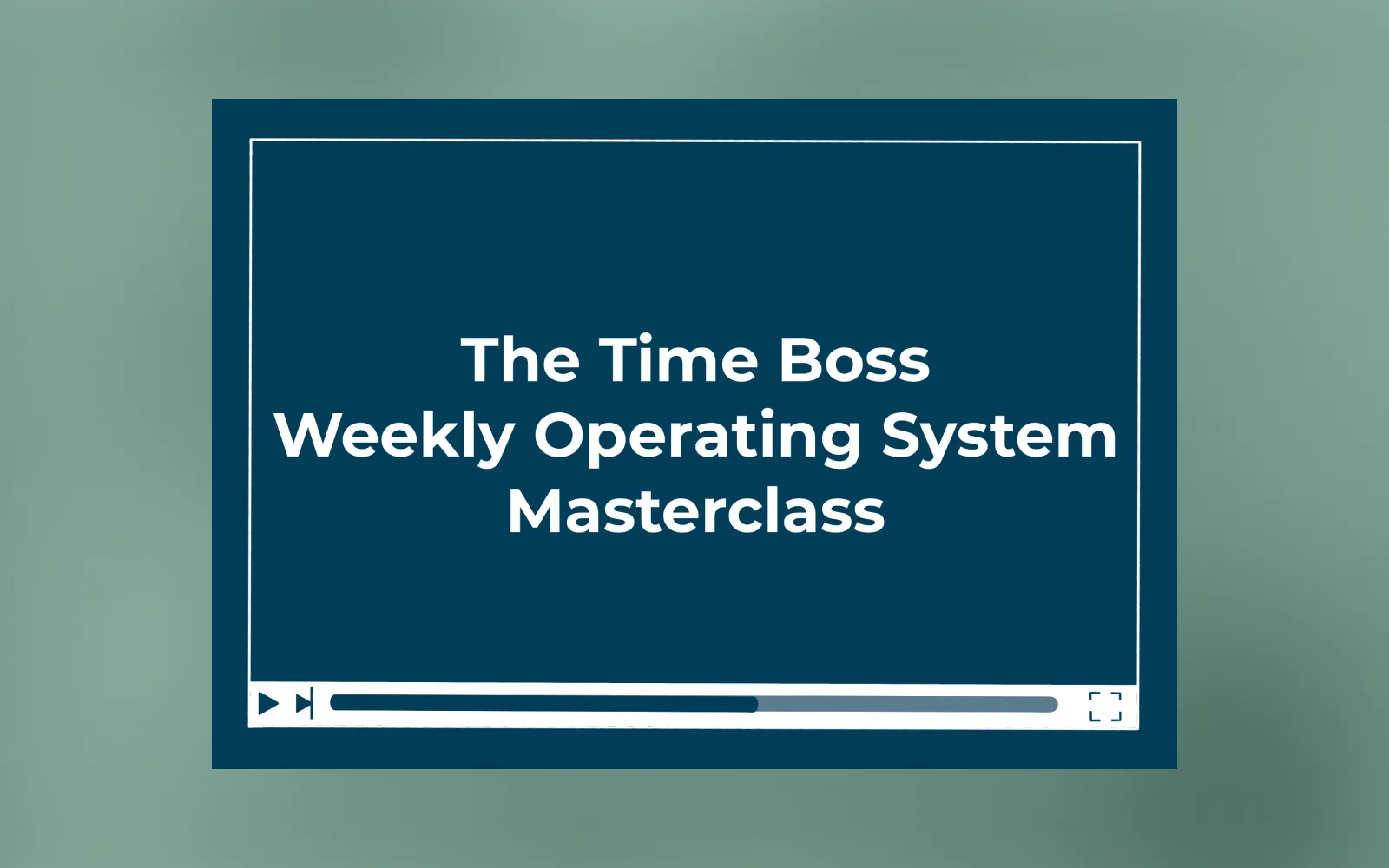Burnout Isn’t Working Too Many Hours - It’s About How You Work Them
Oct 09, 2024Burnout is a topic that’s often misunderstood.
People tend to associate burnout with long hours, thinking that working too much inevitably leads to burnout. But that's only part of the story. In reality, burnout isn’t necessarily about the quantity of hours you work. It's about how you work those hours. It’s entirely possible to work 20 hours a week and feel completely exhausted, or work 80 hours a week fully alive doing the best work of your life.
But why? What’s the difference between those who thrive and those who burn out, regardless of hours worked?
There are three main reasons why people burn out, and none of them have to do with the length of the workweek. Let’s dive into them.
1. You Don’t Take Enough Breaks Throughout the Day
One of the most common reasons people burn out is they simply don’t take breaks. They move from task to task without stopping, pushing themselves from one meeting to the next, and jumping from one email to another. In this nonstop pace, they deplete their energy reserves without giving their brain and body a chance to recharge.
Think of it like a phone battery. If you don’t plug in during the day, you’ll inevitably run out of power. A similar principle applies to your energy levels. When you constantly operate at full speed, you end up with nothing left to give by the end of the day.
If you repeat this pattern day after day, you’ll grind down and eventually reach burnout.
That’s why it’s essential to build in intentional breaks during your workday. Take time to pause, step away from your screen, and reset. Whether it’s a short walk, a quick stretch, or simply sitting quietly for a few minutes, these breaks are vital for maintaining your energy levels and preventing burnout.
Tip: Try scheduling a 15-minute break after every 90 minutes of focused work. These micro-breaks allow you to recharge, refocus, and return to work with more energy and clarity.
2. You Don’t Prioritize Rest and Recovery Outside of Work
What you do outside of work is just as important as what you do during work. Many people don’t make time for self-care, exercise, or activities that create rest and recovery. They spend their evenings mindlessly scrolling through social media, binge-watching TV, or simply worrying about the next day’s tasks. As a result, they miss the chance to truly recharge.
Recovery isn’t just about relaxing. It’s about engaging in activities that fill your energy tank. This could mean going for a walk, hitting the gym, stretching, practicing yoga, meditating, or even spending quality time with loved ones. Prioritizing these activities helps reset your mind and body, preparing you to take on challenges with renewed energy.
If you skip these recovery practices, your body and mind never get the chance to fully recharge. You wake up feeling as exhausted as you were when you went to bed, and that fatigue compounds over time. Without a proper rest and recovery routine, burnout is just a matter of time.
Tip: Integrate daily self-care habits that work for you. Whether it’s a morning run, a mid-day yoga session, or an evening walk, make it part of your routine to refuel your energy outside of work hours.
3. You Don’t Understand the Why Behind Your Work
Finally, burnout often occurs when people don’t have clarity around the purpose behind their work. It’s not enough to just do the tasks on your list. You need to understand why those tasks matter. Without a sense of purpose, it’s easy to feel disconnected, unmotivated, and overwhelmed, even when you’re not working excessive hours.
When you have a clear reason for why you’re doing what you’re doing, you gain motivation and resilience. Hard tasks and long hours become manageable when you know they’re tied to a greater goal. Purpose gives you the energy to push through challenges, making your work feel meaningful instead of draining.
Imagine working on a difficult project that aligns with your personal or professional goals, whether it's building a product that solves a problem you care deeply about or leading a team to achieve a milestone that excites you. In these moments, the "why" behind your work fuels you, making it easier to persevere, even when things get tough.
Tip: Regularly reconnect with your purpose. Take a moment in your Weekly Planning Meeting (a Time Boss staple) to ask yourself: Why am I doing this task? How does it connect to my larger goals? Understanding this helps you focus on tasks that matter and avoid burnout.
Burnout Isn’t Working Too Many Hours—It’s About How You Work Them
Ultimately, avoiding burnout isn’t about reducing your work hours. It’s about managing how you work those hours. When you make time for breaks, prioritize rest and recovery, and connect your tasks to a meaningful "why," you create a sustainable work pattern.
The Time Boss framework focuses on building these habits into your daily and weekly routines so you can get the results you want without the exhaustion and overwhelm.
Burnout isn’t inevitable, and with the right strategies, you can stay productive and energized, no matter how many hours you work. Remember, it’s about working smarter, not harder, and taking care of yourself along the way.
If you're ready to learn more about how to implement these habits, join us in our Masterclass, where we dive deep into the Time Boss framework to help you get the results you want without burning out.
Master Your Time Each Week with the "It's About Time" Newsletter
Practical tips, helpful guides and more delivered weekly.


